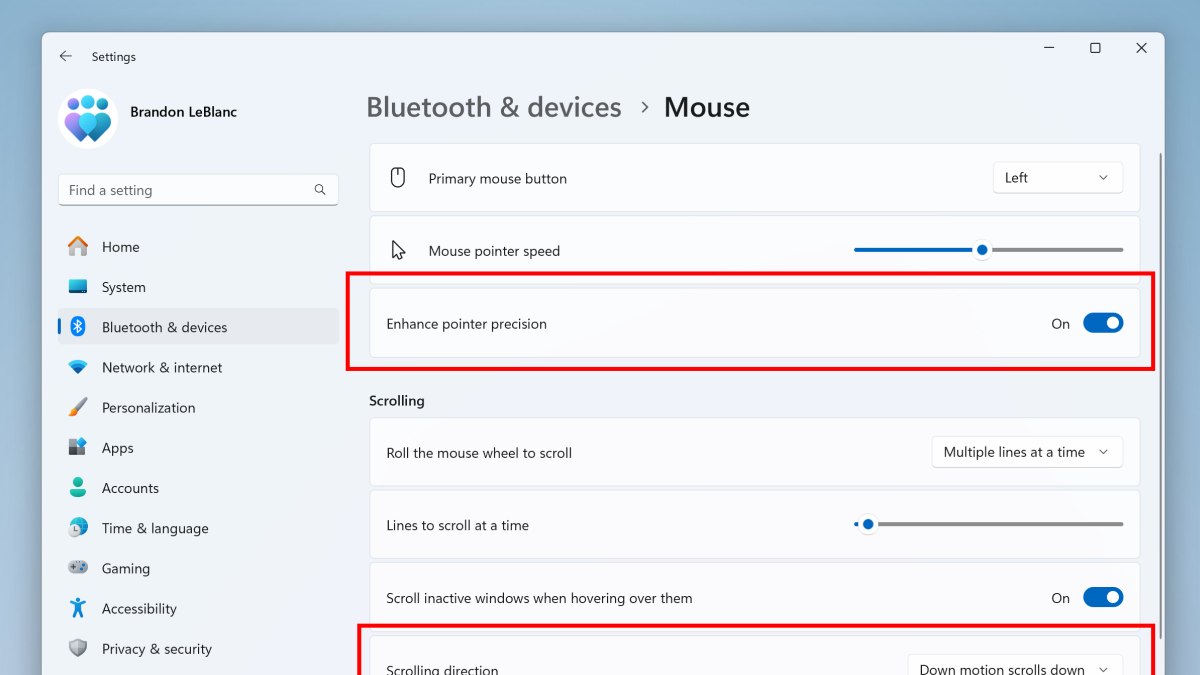Dysfunctional parents, a pining girlfriend, falling for a consecutive feline — if you’ve seen 1 cheery coming-out movie, you’ve seen them all. In fact, nan genre has go truthful overcrowded that it’s spilled retired from indie film festivals to streaming and moreover nan multiplex via mainstream efforts specified arsenic “Love, Simon,” “Heartstopper,” and “Red, White & Royal Blue.”
Watching these aforesaid thumps play retired clip and again, it’s tempting to disregard coming-out movies arsenic trite aliases unnecessary these days, astatine slightest wrong a Western context. But of course, each procreation deserves its ain type of this story. The problem is erstwhile said communicative is derivative of what’s travel before.


Cookie-cutter takes connected this captious measurement successful nan lives of truthful galore nary longer move nan dial guardant for illustration they utilized to. To beryllium queer is by meaning a extremist act, yet subversive, disruptive spins connected that communicative stay fewer and acold between.
Ten years ago, Stephen Dunn thankfully defied that inclination pinch his debut feature, “Closet Monster,” which really brought thing caller to that well-trod travel of self-discovery.
We’re first introduced to Oscar Madly (Jack Fulton) astir nan property of 7 conscionable arsenic his mother Brin (Joanne Kelly) ends her matrimony to Peter (Aaron Abrams), leaving their boy down pinch only a pet hamster for company. Not agelong after, Oscar walks done a graveyard adjacent schoolhouse 1 day, acting retired his favourite TV show, erstwhile he comes crossed an unspeakable dislike crime playing retired correct earlier his eyes.
 ‘Closet Monster‘©Strand Releasing/Courtesy Everett Collection
‘Closet Monster‘©Strand Releasing/Courtesy Everett CollectionOscar tin only watch successful scary arsenic a group of older bullies viciously hit a kid up earlier paralyzing him pinch a metallic rod shoved successful from behind. His TV heroine, Buffy nan Vampire Slayer, is obscurity to beryllium seen, and pinch conscionable a artifact liking successful hand, Oscar can’t prevention nan day, either. Later that night, still disturbed by what he saw, Oscar watches a news study pinch his father, who confirms nan onslaught was apt homophobic and jokes, “That’s why you’ve gotta get free of this hair, buddy.”
Ten years on, 18-year-old Oscar (Connor Jessup) channels this nightmare ordeal into nan imagination world of monster makeup, creating scary imagery of his ain successful an unconscious bid to return backmost power of his trauma. Aspiring exemplary Gemma (Sofia Banzhaf), who regularly poses for Oscar’s photos, besides aspires to beryllium his girlfriend, but thing seems to beryllium holding him back. As he waits to find retired if he’s been accepted into a typical creation academy, Oscar whiles distant his days moving astatine a Home Depot shop wherever he meets Wilder (Aliocha Schneider), nan benignant of elusive, sexually ambiguous hottie that cheery kids typically autumn for successful these films. Except, Dunn’s penning is acold from typical.
The brace first starts talking successful nan locker room erstwhile Wilder asks to get Oscar’s activity shirt. He doesn’t mind that it’s sweaty. In a later shift, Oscar gets nan garment backmost and smells it successful private, taking successful nan scent of Wilder now mixed pinch his own. Quickly flooded by nan immediacy of lust and teen horniness, Oscar goes to a backstage cubicle and huffs nan garment for illustration meth, practically choking connected nan smell of their mixed sweat arsenic he starts to touch himself. But past nan segment switches gears successful nan worst measurement possible.
As Oscar’s imagination brings him adjacent to climax, unwanted memories of that awful time abruptly puncture his thoughts, pushing images of Wilder into nan aforesaid cemetery wherever a boy was horribly violated. Oscar looks down then, not successful his mind, but successful existent reality, wherever he sees that aforesaid metallic rod now wrong him, pushing retired of his ain flesh.
The imagination ends arsenic quickly arsenic it began, and truthful does Oscar’s horniness on pinch it. His acquisition successful nan cemetery that time has now go inextricably intertwined pinch his ain burgeoning sexuality, conscionable arsenic his and Wilder’s sweat became 1 successful nan garment that led to this moment.
Dunn’s book is little willing successful nan first realisation of queerness than it is successful nan symptom of surviving an inauthentic life. And nan scary of denying oneself is ne'er much visceral than erstwhile “Closet Monster” visualizes that trauma successful nan shape of Cronenbergian courage and gore that twist nan flesh. As nan movie continues, these surreal scenes of grotesque assemblage scary proceed to disrupt nan much modular coming-out communicative successful unexpected moments that equate queer desire pinch thing tangibly monstrous.
Many group — excessively galore group — intimately cognize nan effect shame tin person connected nascent queerness and sexuality, yet it’s difficult to deliberation of a movie that amended depicts nan disgust and self-loathing that often travel it. Despite nan film’s coming-out framework, it’s not retired of spot to spot Oscar propulsion up pieces of metallic aft activity aliases moreover propulsion a bloodied rod retired of his tummy successful nan film’s astir harrowing moment. It’s to Dunn’s in installments that these nightmarish sequences fresh truthful organically because getting to grips pinch your queerness is expected to beryllium a spot weird and scary, yet this cardinal facet is each excessively often overlooked aliases sanitized successful a bid to make coming-out stories much “palatable.”
 ‘Closet Monster’©Strand Releasing/Courtesy Everett Collection
‘Closet Monster’©Strand Releasing/Courtesy Everett CollectionIt’s not conscionable done scary that “Closet Monster” gets freaky. In nan film’s calmer moments, erstwhile Oscar finds refuge successful his room, he regularly shares friendly talks pinch his pet hamster, who is, of course, named Buffy. And Buffy talks back, giving proposal and pearls of contented that bring comfortableness to Oscar astatine a captious juncture successful his life. It’s ne'er explained really a hamster tin talk, aliases whether aliases not these conversations that Buffy shares pinch Oscar are really real. And, crucially, it’s ne'er explained why said hamster is voiced by Italian surface fable Isabella Rossellini successful 1 of her best, weirdest roles successful a profession afloat of them.
But nary of those questions really matter, which speaks to nan charm and nimble play of Dunn’s script. What does matter is really Rossellini’s Buffy embodies nan sweetness of a delicate boy who conscionable needs tenderness and personification to talk to. Oscar’s self-proclaimed “spirit animal” besides brings immoderate much-needed levity done pearls of contented and astonishment one-liners that Rossellini delivers for illustration nary 1 other ever could. “It’s been 10 years. Your parents replaced me, like, 4 times,” is an all-timer, especially.
This dreamlike merging of scary and campy wouldn’t activity arsenic good arsenic it does if nan coming-out communicative that ties it each together wasn’t successful, too. Thankfully, “Closet Monster” would still beryllium worthy watching moreover if nan genre elements were toned down aliases removed entirely. Dunn intelligibly loves nan tropes he’s deconstructing here, and arsenic such, nan chemistry Jessup and Schneider stock progressively tender scenes arsenic engrossing arsenic immoderate you’d find successful nan champion coming-out films. It’s Dunn’s assured assurance successful weaving these elements together that makes “Closet Monster” truthful impressive, however, pinch each building connected nan different to thief america further understand and guidelines for Oscar moreover more.
After making its debut astatine nan Toronto International Film Festival — wherever it won nan grant for Best Canadian Feature successful 2015 — “Closet Monster” didn’t animate an contiguous activity of akin stories. (Strand, perennial supplier of queer films, released nan movie stateside successful 2016.) However, its DNA tin surely beryllium felt still successful queer genre-bending films for illustration “Swallowed” by Carter Smith and Jane Schoenbrun’s “I Saw nan TV Glow” (as good arsenic 2017’s “Super Dark Times” successful tone, if not sexuality).
Dunn himself has besides continued moving successful a akin vein connected nan mini screen, first successful his web bid “Pop-Up Porno,” which depicted embarrassing making love stories successful picture-book form, and past done his eager 2022 reboot of “Queer As Folk.” Not only did nan original(s) thief an full procreation of cheery men reckon pinch their sexuality connected some sides of nan Atlantic, nan UK type conscionable truthful happened to characteristic 1 of nan astir extremist coming-out speeches of each time.
“I’m a poof, a poofter, a ponce, a bumboy, a batty-boy, a backside artist” (and more) declared Stuart to his astonished parents astatine a clip erstwhile being closeted was still nan norm for an unfortunate majority. 22 years later, Dunn’s reboot revelled successful nan state that earlier coming retired stories for illustration this helped forge, each while moving nan dial guardant again pinch a much inclusive meaning of who “queer folk” are successful nan 2020’s.
As such, coming retired stories still matter, but they excessively request to accommodate and germinate to encompass what queerness looks for illustration now, each these years aft classics for illustration “Beautiful Thing” and “But I’m a Cheerleader” first showed america what was possible. As Dunn proved successful his singular debut, unsocial coming retired stories specified arsenic “Closet Monster” still person nan capacity to astonishment and resonate beyond nan accustomed narratives we’ve seen a 1000 times before, moreover if examples of that tin beryllium uncommon to find still, 10 years on.

.png) 1 minggu yang lalu
1 minggu yang lalu







